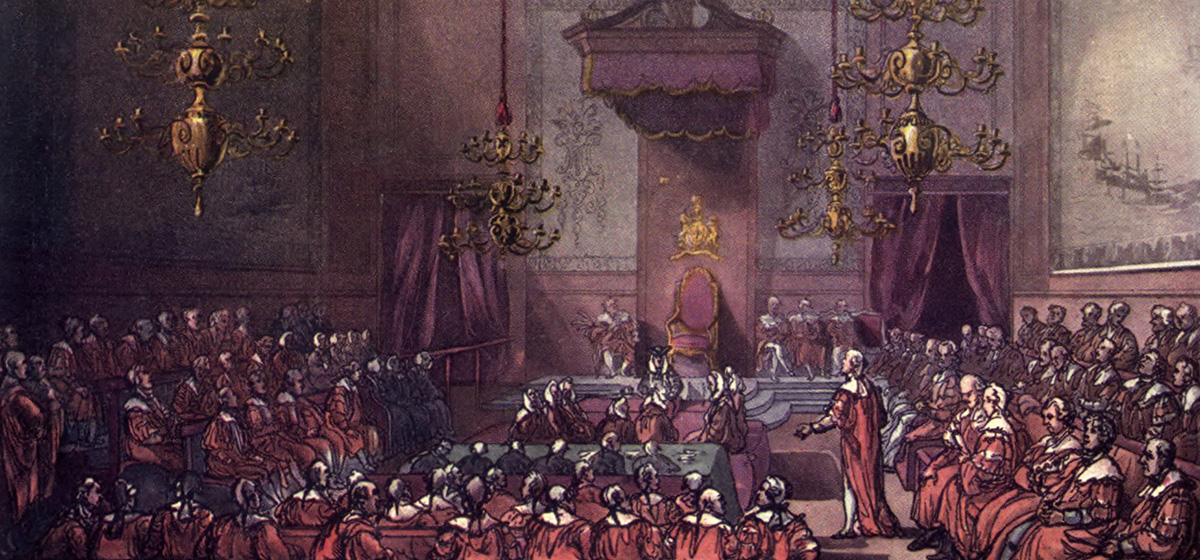Buying Your Way Into Nobility

We’re talking about the “subtle maneuvers” we were using to try to drag the charming-but-antediluvian Isle of Arran into the modern era and prevent Lady Jean from hobbling off to the poorhouse.
Putting the old ladies to work
One day, I arrived on Arran after spending a few days in Edinburgh talking with Lady Jean’s estate managers and accountants. I needed to speak with Lady Jean, but she wasn’t at Strabane. As I was leaving the house I ran into Charles, who told me, “Mum’s ‘putting up.’”
That seemed like an English sentence to me, but it may as well have been Swahili. Observing my confusion, Charles said, “Come on, I’ll show you.”
We walked to the town of Brodick and into what Charles called a “stillroom” that smelled absolutely divine. Sure enough, there was Lady Jean and a bunch of other old ladies (at least, they seemed old to me; they were probably in their sixties). They were having a grand old time, doing more gossiping than “putting up,” but at least what they were putting up smelled pretty good.
Not wanting to interrupt the fun, I told Lady Jean that I would see her for cocktails later. I wandered around Brodick and entered a cheese shop, and there on the shelves, in addition to the cheese, were preserves made by Lady Jean and her cronies. The jars sported a homemade, handwritten label, a cloth top and were dirt cheap.
I thought nothing of this until, a few days later, I was in London strolling through Harrods. I entered the food halls and stumbled across jars of preserves made in the south of France. Unlike Lady Jean’s preserves, these were sold in tiny jars that looked like they held about one ounce. The jars had charming labels, screw-on tops, and sold for staggering amounts of money.
“Aha!” I said.
Over the next few years, we organized “Arran Isle Jellies and Jams” and sold the preserves in tiny jars with fancy Arran Isle labels at staggering prices. They were an immediate hit—the more we charged and the smaller the jars, the more people wanted them.
Eventually you could find them in Harrods in London and in Saks Fifth Avenue in the United States (I found them in the Pittsburgh Saks, for example.) You were served Arran Isle Jellies and Jams on first class flights on British Airways, Pan Am and Swissair.
Unfortunately, this popularity meant that Lady Jean and her friends had to work their poor fingers to the bone, which took all the fun out of it. We recruited younger local women, but these ladies didn’t produce the same level of quality as their elders. Also, they often forgot to come to work.
The income from Arran Isle Jellies and Jams was nice, but the operational angle was migraine-inducing. If I recall correctly, the company was eventually merged into something called Arran Fine Foods. You can still buy the preserves, along with the famous Arran mustard, on Patterson’s website here.
Selling status
Our “subtle maneuvers” were working, in a manner of speaking, but not fast enough: the wolf was moving ever closer to Lady Jean’s front door. We needed a way to make a quick buck, and we found it, although Lady Jean nearly fainted dead away when we told her what it was.
You will recall that the Earldom of Arran passed into the hands of Lady Jean’s family in 1503. It turns out that there is a market for earldoms. In the bad old days, if you wanted an earldom you had to do a very good deed for the king (as the second Duke of Hamilton had done) or you had to assemble an army and go out and conquer somebody. Today, you just buy one.
Lady Jean was, to say the least, reluctant to sell a title her family had held for half a millennium. But she was even more reluctant to give up Strabane and go live in a council house in Cumbernauld. (Humble Blogger’s note: Cumbernauld frequently ranks high on the list of “Crap Towns: The 50 Worst Places to Live in the UK.”)
Eventually, Lady Jean agreed to auction off the Earldom of Arran, but subject to so many conditions (designed to keep the bad publicity at bay) that I was sure no one would show up to bid. But then a bizarre and extraordinary thing happened.
Several years earlier, I had sold a very large real estate parcel to a guy named Joe, who was listed on the Forbes 400. We had stayed in touch and one day, no more than three weeks before Lady Jean’s auction, Joe called me up.
He said, “I want to buy a title. You know anything about that?”
I nearly fell off my chair, but I managed to say, “By ‘title,’ Joe, you mean Sir Joseph of Montenegro, something like that?”
“Exactly. I’m working with a broker and he wants me to buy this Japanese title. You know anything about Japanese titles?”
I knew less than nothing about Japanese titles, but I wasn’t about to let a little thing like that stand between Lady Jean and a good bid on her earldom.
“Oh, Joe,” I said, “no, no, no, no, no. You don’t want one of those trashy Japanese titles, people will sneer at you. You want to be called a daimyo or a ronjn? What’re they charging?”
“Two fifty large.”
“Well, there you go, you get what you pay for. No, what you want is one of those terrific European titles, the ones that go back centuries and that make people sit up and take notice.”
“Yeah? What do they cost?”
“Low seven figures.”
Joe whistled. “That’s a lot of lettuce.”
“But worth it. You interested or not?”
I explained to Joe that I happened—never mind how—to know of a terrific European title that was going up for sale and soon. However, the only way to obtain the title of Lord Joe, Earl of Arran, was to travel to Arran itself, which wasn’t going to be easy, even though Joe had his own private jet, since there was no airport on the island (and there still isn’t).
“Also,” I said, “make sure you’re on the right island. There are two Arrans.”
And off Joe went. We’ll see how he made out next week.





